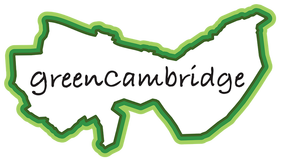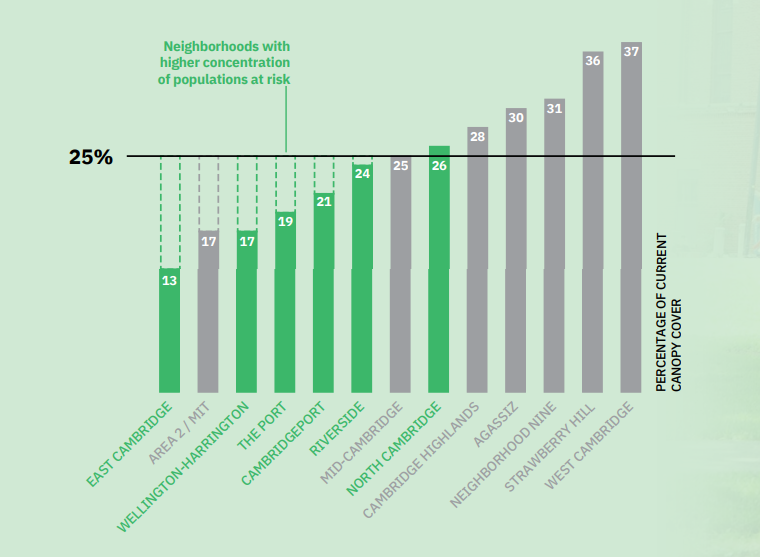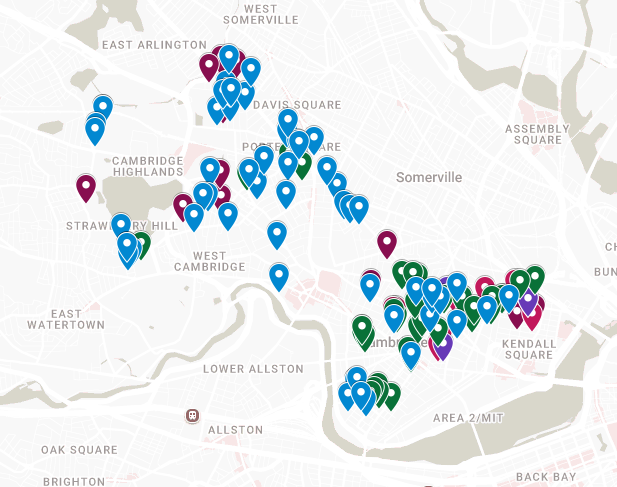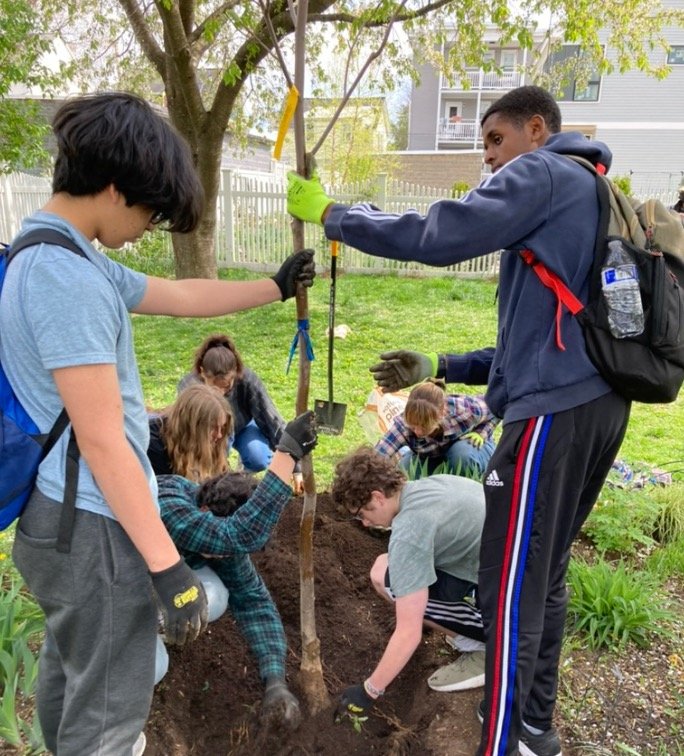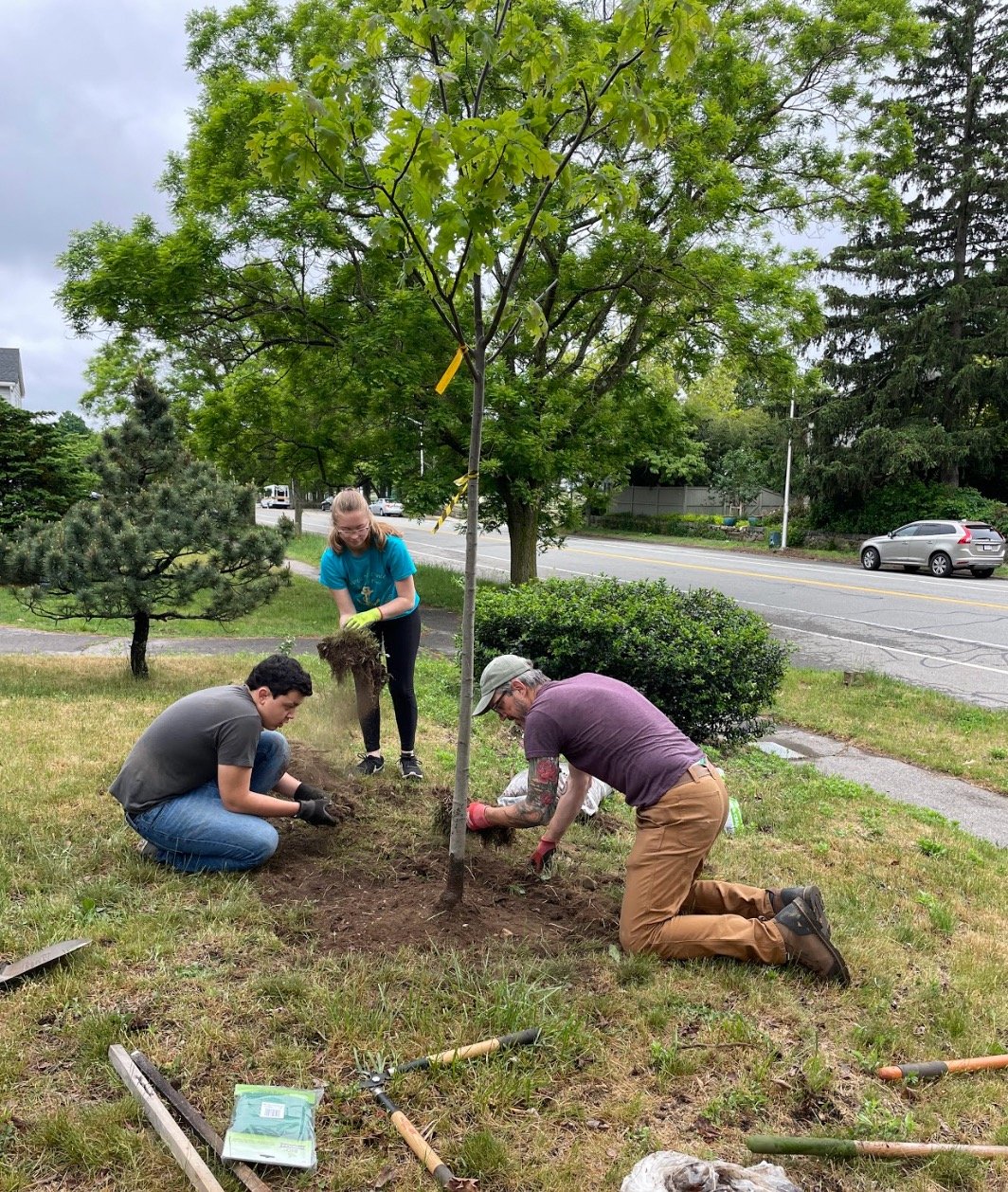
Canopy Crew
Exploring Career Opportunities in Urban Forestry while Preserving and Expanding our Shared Cambridge Tree Canopy Together.
-

Receive a Tree
If you have space on your property, Green Cambridge can plant a free native tree to help expand Cambridge’s urban canopy!
To browse the list of trees we are currently offering this season, click HERE.
-

Become a Canopy Crew Intern
Canopy Crew is a paid 8-month environmental careers discovery program specializing in urban forestry and environmental justice for Cambridge high school students aged 16-18.
If you’re interested in expanding our urban canopy and want to work with your community towards climate resiliency, check out the job description!

Why is this important?
Source: Healthy Forest, Healthy City, 2020
Every year since 2009, the city of Cambridge loses 16.4 acres of canopy coverage; that’s the equivalent of more than 9 soccer fields! As of 2019, our canopy coverage was 26% and projected to decline to 10% by 2050 if we do not preserve our existing trees while also planting thousands more each year. By 2050, Cambridge will be much hotter than it is now and simulations project flooding of the Charles River, Alewife Reservation, and Fresh Pond areas. These major changes to our City can be slowed by investing in our Urban Tree Canopy.
City-wide statistics of Cambridge trees do not account for the disparities in canopy coverage between neighborhoods. For example, West Cambridge has three times East Cambridge's coverage, inequities that correlate to socioeconomic measures.
Canopy Crew is a paid green jobs and environmental careers discovery program specializing in urban forestry and environmental justice for Cambridge high school students aged 16-18. Across 44 sessions that run from the beginning of October through the first week of May, Crew members explore how trees impact equity and justice in Cambridge and explore career opportunities in urban forestry, environmental science, and community outreach while preserving and expanding our shared tree canopy. Using the Cambridge Urban Forest Master Plan as a guide, Crew members become ambassadors to the community for the urban forest while taking direct hands-on action to mitigate the generational crisis of canopy loss and climate change.
Still, have questions? Visit our FAQ page!
Funded in part by the American Rescue Plan Act through the City of Cambridge, the National Fish and Wildlife Foundation, the Cambridge Redevelopment Authority, and the USDA Forest Service through the Massachusetts Department of Conservation and Recreation Urban and Community Forestry Program.
This institution is an equal opportunity provider.
Our Method
Since 2019, Green Cambridge has been collaborating with Cambridge Rindge & Latin School and the Cambridge Department of Public Works to bring high school students out into the community to plant trees within the city. Launched in Spring 2022, the Canopy Crew Program expands on that effort. Our goal is to plant up to 300 trees per year across the spring and fall planting seasons. To create a pipeline, we’ll be utilizing a new tree nursery at the new Alewife Park parking garage in North Cambridge provided by IQHQ anticipated by 2026.
Trees Planted through Canopy Crew
Since 2021, we have planted over 170 trees across the city. You can help us increase that number!
Planting Sites Around Cambridge
With the help of Kent Johnson, we’ve identified and mapped over 3,000 tree planting sites on residential property!
Learn more About our New Tree Nursury in Partnership with IQHQ
-
IQHQ is a life science and research real estate development trust, invested in the creation of the Alewife reservation and community.
-
The Green Cambridge tree nursery is apart of a larger project that includes our own community farm as well as an ecological education center for Mass Audobon to compliment the life science research center at Alewife Park.
